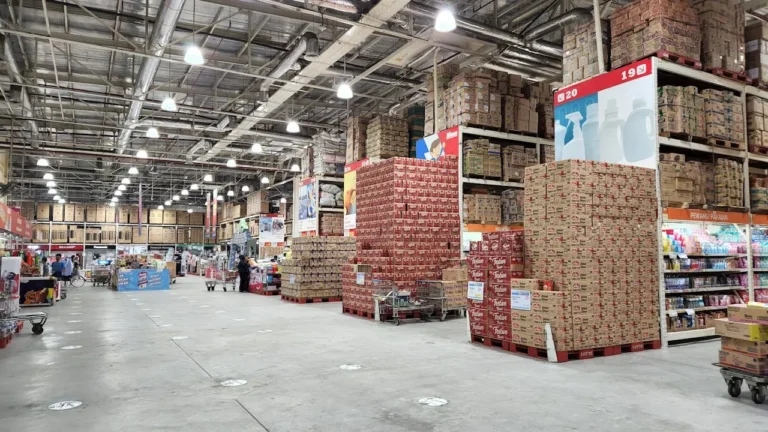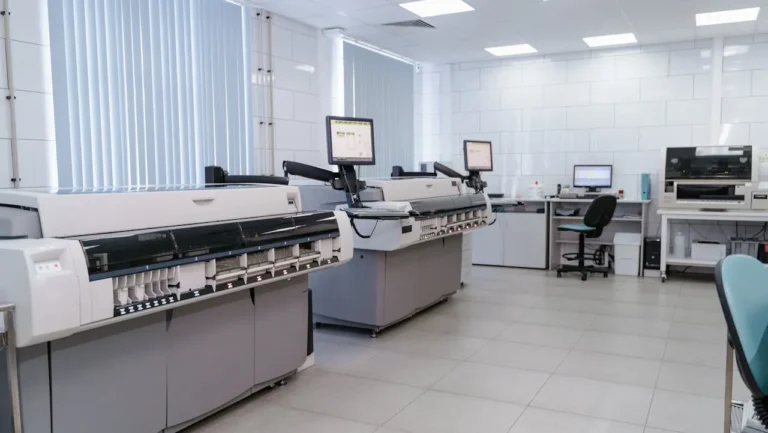
Skyways Secures $37 Million USAF Contract to Transition Autonomous Cargo Drone into Mass Production
In a significant milestone for the future of autonomous logistics, Skyways, a California-based aerospace startup focused on long-range unmanned cargo aircraft systems, has announced the award of a $37 million contract from the U.S. Air Force’s AFWERX program. The funding will support the company’s transition from prototype development to full-rate production of its V3 autonomous cargo drone, a next-generation platform engineered to dramatically expand the capabilities of unmanned aerial logistics across both military and commercial sectors.
This contract reflects the U.S. military’s growing investment in autonomous and dual-use aviation technologies to meet its evolving operational needs while simultaneously leveraging commercial innovations. It also marks a major leap forward for Skyways, whose long-term ambition is to build the world’s largest fleet of autonomous logistics aircraft—a vision that is now closer to reality thanks to this funding boost.
Bridging Prototype to Production
The newly secured contract will enable Skyways to undertake several critical initiatives that move the V3 platform beyond experimental status. These include:
- Finalizing the V3 production design, incorporating lessons learned from earlier iterations.
- Scaling up manufacturing capacity, with an emphasis on processes compatible with mass production.
- Further developing its autonomy stack, the proprietary software and hardware system that enables its aircraft to operate independently in a wide range of environments.
- Preparing for high-volume deployment, with a focus on use cases in both the defense and commercial sectors.
The AFWERX award not only validates Skyways’ technical approach but also positions the company’s V3 aircraft to potentially become a Program of Record, the formal designation used by the Department of Defense (DoD) to institutionalize acquisition and deployment of a technology across service branches.

“This contract is a critical step toward fulfilling our mission of deploying thousands of autonomous cargo drones where they’re needed most,” said Charles Acknin, Co-Founder and CEO of Skyways. “By advancing from prototype to production, we are laying the groundwork for a scalable, affordable logistics network that can reach areas conventional aircraft cannot.”
A Disruptive Approach to Aerospace Innovation
One of the standout features of Skyways’ strategy is its development model, which sharply contrasts with the industry norm. Rather than relying solely on simulations or digital concept presentations, Skyways self-funds early-stage, full-scale aircraft development and testing. This allows prospective customers to evaluate actual aircraft performance during live demonstration flights—providing tangible proof of capability instead of theoretical models.
“We’ve taken a pragmatic, fast-moving approach to aircraft development,” said Acknin. “While many aerospace companies spend years and millions on concept validation, we fly full-scale aircraft early in the process. This has allowed us to build trust, iterate faster, and reduce risk for our partners. It’s a big part of why we secured this USAF contract.”
This development-first, demonstration-centric strategy gives Skyways a distinct edge in today’s rapidly evolving defense procurement environment, where agility, cost-efficiency, and real-world performance are increasingly valued.
The Evolution from V2 to V3
Skyways’ journey in drone logistics began with the V2 aircraft, which is already operational and executing long-range logistics missions for select customers. The V2 drone boasts a useful payload of 30 pounds and an impressive range of up to 500 miles—making it suitable for a wide variety of lightweight, long-haul transport missions.
However, the next-generation V3 platform—the subject of the new AFWERX contract—represents a quantum leap in performance:
- Payload Capacity: 100 pounds (over 3x that of V2)
- Range: 1000+ miles
- Flight Endurance: 20+ hours of continuous operation
- Design: Retains the proven Skyways autonomy stack and introduces a double-hybrid propulsion system for vertical takeoff and efficient forward flight.
The V3’s double-hybrid configuration is particularly noteworthy. By combining electric and fuel-based propulsion systems, the aircraft can take off and land vertically like a helicopter and then transition to fixed-wing flight for long-distance cruise—an essential feature for operating in austere or infrastructure-poor environments where runways are unavailable or unsafe.
This combination of vertical lift capability and fixed-wing range efficiency, paired with autonomous operation, allows the V3 to deliver cargo to remote, dangerous, or disaster-impacted areas without risking human pilots or requiring extensive ground support.
Strategic Alignment with Military and Commercial Objectives
The U.S. Air Force’s interest in Skyways’ platform is no accident. As global supply chains grow more contested and logistics needs become more complex, the Department of Defense (DoD) is actively seeking uncrewed, efficient, and scalable platforms to reduce risk to human life while maintaining operational readiness.
Uncrewed cargo drones like the V3 offer several clear advantages:
- Force Multiplication: Autonomous systems can complement manned logistics by handling repetitive or risky supply missions.
- Operational Flexibility: Vertical takeoff and landing allows for decentralized supply chains and operations in non-permissive environments.
- Cost Efficiency: Low operating costs and high scalability mean more missions at lower long-term cost.
- Dual-Use Potential: Platforms developed with defense funding can later be commercialized, reducing cost burden to the government.
For commercial logistics players, these same attributes could prove transformational. In sectors such as offshore energy, disaster relief, medical supply delivery, and remote mining operations, the ability to quickly deploy an affordable, long-range, uncrewed aircraft offers an attractive solution to costly or dangerous logistics problems.
Skyways’ V3 is positioned to meet this challenge head-on by offering a system that is field-ready, production-scalable, and price-competitive—attributes that traditional aerospace players have struggled to deliver rapidly.
Building the World’s Largest Autonomous Cargo Fleet
Looking ahead, Skyways has set an ambitious five-year goal: to build and deploy the world’s largest fleet of autonomous logistics aircraft. This vision hinges not only on continued technical advancement, but also on developing robust manufacturing capabilities and navigating regulatory environments that govern commercial drone operations.
With thousands of V3 aircraft envisioned for deployment globally, the company is focusing heavily on:
- Production automation, to ensure consistency and scalability.
- Regulatory compliance, including airworthiness certification and autonomous operation approvals.
- Partnerships with logistics and defense stakeholders, to refine mission profiles and use cases.
Skyways believes the V3’s combination of autonomy, payload, endurance, and scalability can unlock billions in value across the global supply chain—disrupting a cargo logistics market currently dominated by expensive manned aircraft, ground vehicles, or helicopter services.
Endorsement, but Not Endorsement
While the U.S. Air Force’s AFWERX investment signals confidence in Skyways’ vision, the company is careful to clarify the nature of the partnership. A standard disclaimer accompanied the announcement:
The views expressed are those of the author and do not necessarily reflect the official policy or position of the Department of the Air Force, the Department of Defense, or the U.S. government.”
This indicates that while AFWERX is funding the development under a specific innovation contract, this does not constitute a blanket endorsement of Skyways or guarantee future procurement. However, such contracts are often an essential first step toward wider DoD adoption.
A New Era of Autonomous Logistics
Skyways’ $37 million contract with the U.S. Air Force is more than just a funding win—it’s a powerful validation of its vision to reshape the cargo logistics landscape through autonomous aviation. By taking bold risks early—self-funding full-scale prototypes, adopting hybrid-electric propulsion, and emphasizing scalable design—the company has earned the opportunity to lead in a space many legacy firms have been slow to enter.
If successful in meeting the contract’s deliverables, Skyways could emerge as a dominant force in next-generation cargo transport, bridging critical capability gaps in both defense and civilian supply chains.
In a world increasingly defined by speed, flexibility, and resilience, the Skyways V3 may well become the standard-bearer for aerial logistics in the autonomous age.




